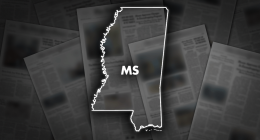
Seven years ago, in a moment both momentous and foreshadowing, Disney blinked.
At the time, Disney’s Marvel unit was facing off against the estate of comic book legend Jack Kirby over whether his heirs could terminate a copyright grant and thus reclaim rights on characters including Spider-Man, X-Men, The Incredible Hulk and The Mighty Thor. And, this needs to be stressed: Disney was winning. A federal court ruled in 2011 that Kirby’s contributions as an illustrator between 1958 and 1963 were works made for hire and not eligible for termination. By 2014, the Kirby estate had taken the dispute up to the Supreme Court. And, this also needs to be stressed: The Supreme Court only agrees to review a tiny fraction of cases. And yet, in the face of the improbable — the justices actually intervening and then snapping their fingers like Thanos to change the fate of the Marvel Cinematic Universe — Disney blinked. The company couldn’t take the chance, no matter how small. It settled with Kirby’s estate, with insiders placing the value of the deal at tens of millions of dollars.
Now Disney is facing new copyright termination attempts from the heirs of other comic book authors including Spider-Man co-creator Steve Ditko, and one must wonder whether history will repeat itself. In seeking declaratory relief through preemptive lawsuits filed on Friday, Disney touts the Kirby case as “virtually identical circumstances.” The entertainment giant clearly hopes that judges will come to the same conclusion that the contributions on characters including Iron Man, Loki, and Dr. Strange were works made for hire. But even if Disney repeats its success from a decade ago, that would merely mean another trip to the Supreme Court facing the same calculus as the petition that compelled a settlement seven years ago. So is Disney’s new leadership more risk tolerant? That’s basically the only reason why these latest copyright terminations wouldn’t settle.
Let’s spell out Disney’s risk in more detail as the nuances of copyright are probably less understood than the MCU metaverse. There’s already a lot of confusion circulating about what a Disney loss would mean with respect to future movies and TV shows. Actually, it’s way weirder than anyone imagines.
To begin, how did we get here?
In the mid-1970s, Congress decided to allow authors or their heirs to reclaim rights once granted to publishers after waiting a statutory set period of time. This went hand-in-hand with lawmakers lengthening the copyright term. (Ironically and famously, Disney lobbied for this to happen so as to protect Mickey Mouse from falling in the public domain.) The fruits of the latter portion of the newly extended term, it was decided, would go to authors, who often assign rights for modest compensation when they’re up-and-coming and don’t have much bargaining power. In short, authors get another bite at the apple by waiting decades and then terminating copyright grants.
When it comes to the great creations from Comic World’s Silver Age, however, copyright termination becomes an Avengers-size legal problem. That’s largely because it’s no simple task determining authorship.
Most of the writers and illustrators working for Marvel Comics back in the 1960s did so on freelance basis. They worked in a highly-collaborative environment. So who really is the “author” of a character like Spider-Man. Ditko? Stan Lee? Marvel? All of the above?
These days, when work is created as “made for hire” — meaning the employer is deemed the author — there’s a written document that spells it out. But back in the 1960s when everyone was operating under a copyright law from 1909, such paperwork often didn’t happen. And so, courts have created an elaborate test to figure out when older commissioned art are works made for hire. Supreme Court Justice Thurgood Marshall‘s 1989 decision in CCNV v. Reid addressed the proper test. And when Kirby’s estate petitioned the high court nearly a decade ago, the justices were invited to give it another crack.
Disney believes that since freelanced contributions were done at Marvel’s instance and expense, these characters were authored by the company, not by individual writers and illustrators. But Disney has a fallback. Even if judges decide Spider-Man, Iron Man, Thor, etc. aren’t works made for hire and can be terminated, these characters would be joint works. Marvel would remain at least a co-owner. (That’s due to past settlements with Lee and Kirby.)
Here’s where it starts getting as trippy as a Dr. Strange story.
Under U.S. copyright law, co-authors are allowed to freely use and license work. They must share revenue with each other, but this means (and Disney consoles itself with the following fact) that whatever happens in court, the comic book author heirs can’t block the making of new movies in the Marvel Cinematic Universe.
While that’s true, there are some caveats that may cause Disney to pause before becoming too overconfident.
First, sharing profits on MCU films is no small thing. These movies cost hundreds of millions to make, generate billions, and are now being used to prop up streamer Disney+. Sharing impacts the entire economic structure of production and distribution and could lead to more court battles like the one being pursued by Scarlett Johansson.
Second, since co-authors are allowed to freely use and license work, that potentially means Patrick Ditko and other Marc Toberoff clients would have the right to license rights to these iconic superheroes to other studios. (Imagine Thor being licensed for a Superman movie. Theoretically, it could happen.)
Third, and perhaps least appreciated of all, is what happens outside of the United States. The termination provisions of U.S. copyright law only impact the domestic market. BUT foreign copyright laws might come into play if these superhero characters aren’t deemed as works made for hire. Some countries aren’t as generous to authors’ heirs as the United States. But some countries are more generous. Take Canada, for instance. The northernly neighbor mandates automatic reversion of the copyright to the estate 25 years after the author’s death. And get this — in Canada, joint owners may not license jointly owned work to others without the consent of the other co-owners. Could a future season of Loki be prevented from showing in Canada? The suggestion of something like this occurring seems crazy and dangerous to even broach, and yet….
It’s no wonder that seven years ago, Disney’s brass blinked. There’s a good likelihood that Disney will eventually do similar weighing of the risks (and litigation expenses). Right now, the entertainment giant will hope for momentum in court and leverage before getting serious about a negotiation. But at some point, the stewards of the MCU will have to contemplate the truly unimaginable.
Source: HollyWood








